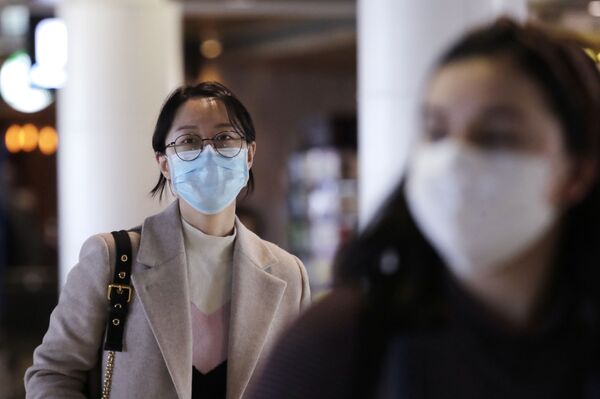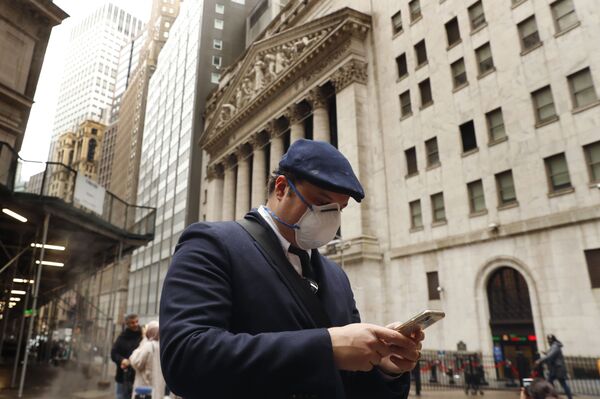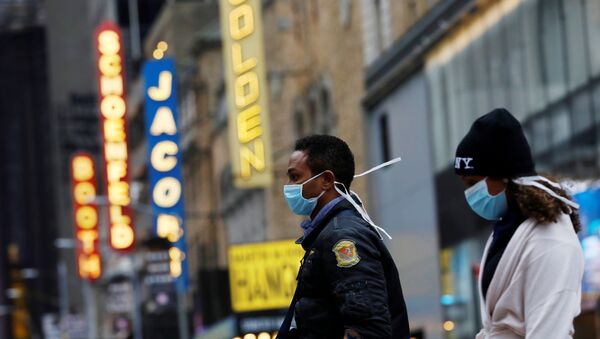The Republican-controlled Senate is expected to take up a new multi-billion package, hammered out in talks between House Speaker Nancy Pelosi and Treasury Secretary Steve Mnuchin and conceived to offer relief to consumers and workers reeling from the damage wielded by the outbreak.
President Donald Trump endorsed the package, as he posted a series of tweets, saying “I fully support” the legislation, and urging Republicans and Democrats in the House to support the bill, adding he was looking forward to signing it “ASAP!”
I fully support H.R. 6201: Families First CoronaVirus Response Act, which will be voted on in the House this evening. This Bill will follow my direction for free CoronaVirus tests, and paid sick leave for our impacted American workers. I have directed....
— Donald J. Trump (@realDonaldTrump) March 14, 2020
Here is a breakdown of the overarching provisions set out in the legislation.
Coronavirus Testing at No Cost
The new bill is set to offer free coronavirus testing, and allocates $1 billion to the Disaster Medical System for testing for uninsured Americans.
According to the legislation, private insurers would be called upon to cover the costs of all testing for people to whom they provide medical coverage.
Testing costs would similarly be covered for those on the government programmes Medicare and Medicaid.

The bill is set to increase federal funding for Medicaid, the healthcare programme targeting the poor.
The aid package also presupposes providing $82 million to the Defence Department, $64 million to the Indian Health Service and $60 million for the Department of Veterans Affairs.
Paid Sick Leave
The new bill contains a provision that employees who miss work due to the coronavirus receive up to two weeks of paid sick leave at their regular rate, to be covered by government employers and private businesses with fewer than 500 employees.
The employees are also entitled to two-thirds of their regular pay in the event they are forced to skip work to care for a sick family member, or a child whose school or day-care provider has closed.
Should a further need arise, the employees are able to receive an additional 10 weeks off at two-thirds pay under the legislation.
The costs of paid sick leave by businesses would be covered by refundable tax credits.
A refundable tax credit to cover sick-leave costs would also be provided to self-employed workers.
The bill is only set to apply to coronavirus-related illnesses, and provision expires at the end of the year.
Unemployment Benefits
All costs would be covered for states extending unemployment payments beyond the usual six month time limit in most states, if their unemployment rates spike by at least 10 percent, with additional administrative costs of states covered by an additional $1 billion.
Employers are to be encouraged to reduce employees’ hours instead of layoffs, with employees granted unemployment benefits to counterbalance lost wages.
Targeted Food Assistance
The new legislation is set to provide $250 million towards a home-delivery senior nutrition programme, $400 million for local food banks, $500 million to cover food assistance to low-income pregnant women and mothers with young children and $100 million to territories such as Puerto Rico and Guam.
To avoid requiring low-income students to eat in a cafeteria, schools offering free breakfast and lunch will distribute the meals to go.
The bill suspends the Supplemental Nutrition Assistance Program work requirements for the duration of the crisis.

The spreading coronavirus has generated fears of widespread economic disruption, as according to the latest data provided by Johns Hopkins University, the US has recorded over 4,660 confirmed cases of the new coronavirus, with at least 85 deaths.
Earlier, on 6 March, Donald Trump signed a sweeping spending bill to combat the spread of the new coronavirus, signing the $8.3 billion aid package on the same day that worldwide cases surpassed 100,000.
The funds should be channeled into supporting public lab testing, isolation and quarantine costs, sanitization of public areas and tracking the virus, with the bill also including more than $3 billion in vaccine research.


